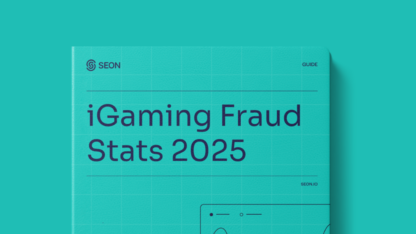While not always illegal, practices like gnoming and multi-accounting continue to pose significant challenges for iGaming operators. These tactics, often employed by matched bettors to circumvent account limits and exploit promotions, undermine fair play and can erode profit margins over time.
According to the UK Gambling Commission, over 17% of online bettors in 2024 reported using strategies that blur the line between acceptable play and policy violations, including the use of multiple accounts. For operators, the implications go beyond financial loss. Failing to curb these behaviors risks alienating legitimate players and weakening overall risk controls.
Fortunately, with the right detection tools and preventive strategies, abuse can be stopped while enhancing the experience for honest users.
Why Is Multi Accounting Matched Betting a Problem in iGaming?
Matched betting — where users exploit promotional offers to generate near-guaranteed profits — already challenges iGaming operators by tilting the odds in favor of the player. While not strictly illegal, the practice is widely discouraged across the industry due to its impact on fair play and profitability.
The problem intensifies when matched bettors discover they can multiply their earnings by controlling multiple accounts. This leads to multi-accounting: the creation of several accounts by a single user, often under fake names or misappropriated identities. One common tactic is gnoming, where the bettor registers accounts under the names of friends, family or even fictitious individuals.
This behavior comes with a range of negative consequences:
- Bonus abuse: Each new account is eligible for signup promotions, inflating bonus redemptions and cutting into margins.
- Fraud risk: Some users escalate to identity fraud, using stolen credentials to create fake accounts and crossing a legal line.
- Analytics distortion: Duplicate or fraudulent accounts skew key metrics, making marketing campaigns and retention strategies less effective.
- Player quality erosion: These tactics attract users focused solely on exploitation, not long-term engagement or fair play.
While multi-accounting is a clear-cut violation and often classified as fraud, gnoming sits in a gray area. It’s more difficult to detect and prove, yet it remains a breach of most operators’ Terms and Conditions and undermines the integrity of betting platforms.
Multi-accounting is just the start. Tackle bonus abuse, affiliate fraud, and more with smart, scalable tools like device intelligence and machine learning.
Learn More
How to Detect Gnoming and Multi-Accounting in Matched Betting
The key to uncovering gnoming and multi-accounting lies in identifying connections between seemingly unrelated users. While some operators wait until the withdrawal phase to investigate similarities, such as matching banking details, a more effective strategy is to begin detection during the onboarding process.
From the moment a user creates an account, you should implement the following approach:
- Collect actionable data upfront: Without compromising the user experience, gather essential signals during signup (e.g. device details, IP address, email domain, behavioral patterns).
- Enrich the data intelligently: Supplement your first-party data with additional context, such as device intelligence, proxy detection and IP geolocation.
- Apply AI-powered dynamic risk rules: Feed this information through pre-defined rules and machine learning designed to catch high-risk patterns associated with multi-accounting and gnoming.
- Generate a risk score: Use this composite score to assess whether the user should be approved, reviewed or blocked.
Based on this risk score, you can triage users in real time:
- Low-risk users are approved instantly, ensuring a smooth, frictionless experience.
- Medium-risk users encounter additional verification steps, such as ID checks. This is known as dynamic friction, as it selectively introduces hurdles based on risk.
- High-risk users can be flagged or denied access altogether to prevent potential abuse.
Boasting unique social and digital footprint analysis, ML and end-to-end customizability, SEON helps iGaming vendors stay safe and grow.
Speak an with expert
Top 3 Custom Risk Rules to Detect Matched Betting, Multi-Accounting & Gnoming
Gnoming and multi-accounting are among the most common forms of promo abuse in iGaming. They’re also relatively easy to spot — if you know what to look for. Device intelligence and digital footprint data are key to identifying connections between accounts before they exploit your platform. Here are three essential risk rules we recommend implementing:
1. Shared Device, Browser or Cookie Hashes
Multi-accounting often involves one person controlling several profiles from the same device. Rather than using different phones or computers, fraudsters typically manage everything from a single setup. SEON generates unique hashes based on device configuration, browser environment and cookie data, allowing you to detect accounts that appear unrelated on the surface, but are digitally identical underneath.
This rule is especially effective because browser setups and device fingerprints are incredibly hard to fake consistently. When multiple users share the same fingerprint, it’s a strong signal of fraudulent coordination.
2. Cookie Blocking or Browser Spoofing
More sophisticated actors may attempt to hide their tracks by disabling cookies or using spoofed browsers. Ironically, this attempt at invisibility often makes them easier to flag. You can automatically detect when users are blocking or stripping essential data, such as cookies, JavaScript or system headers, and assign risk accordingly.
While some privacy-conscious users behave this way, when combined with other signals (e.g., repeated signups or overlapping devices), it strongly indicates attempted fraud.
3. VPNs, Proxies & Anonymized IPs
VPN usage is widespread among matched bettors, and many online tutorials advise it as step one for bonus abuse. IP fraud score analysis can detect anonymized connections, identify known VPN or proxy usage and spot suspicious IP behavior, such as multiple accounts using the same masked location.
Rather than blocking all VPN users right away, this should be factored into a broader risk score, so you can apply dynamic friction only when it’s warranted.
How SEON Helps iGaming Operators Stop Gnoming and Multi-Accounting
SEON is a fully-fledged fraud prevention solution that specializes in real-time data enrichment. Simply SEON empowers iGaming operators to stop fraud before it starts without compromising the player experience. Whether you’re dealing with gnoming, multi-accounting, bonus abuse or affiliate fraud, SEON’s real-time fraud prevention platform gives you complete visibility and control at every stage of the player journey.
By combining advanced digital footprint analysis, device intelligence, IP tracking and behavioral data, SEON builds a detailed profile of every user from the moment they land on your site. Customizable risk rules and AI-driven scoring let you adapt to evolving fraud patterns while minimizing false positives and keeping onboarding friction low for legitimate players.
Clone Search takes detection a step further by uncovering hidden connections between seemingly unrelated accounts. Even when fraudsters tweak details to evade detection, SEON correlates subtle signals like device hashes, cookies, IP addresses and behavioral traits to expose linked profiles and fraud rings.
With SEON, you don’t just block fraud — you turn prevention into a performance driver. From registration to withdrawal, our machine learning models continuously analyze risk, helping you secure promotions, accelerate manual reviews and protect revenue at scale.
SEON helps iGaming operators automate fraud checks, stop fake registrations and speed up manual reviews with real-time data and AI-driven tools. Protect your platform and grow with confidence.
Ask an Expert








